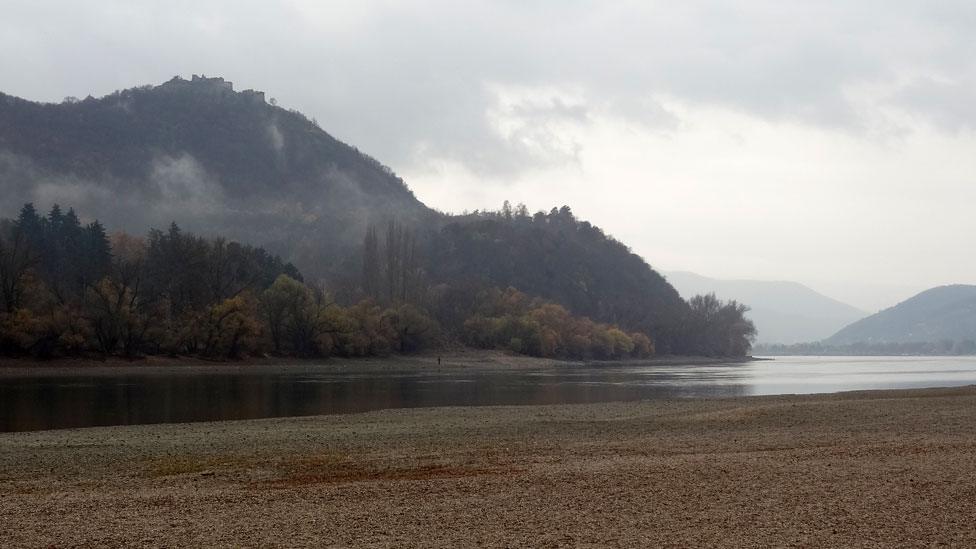Germany condemns 'deeply shameful' protests against migrants
- Published
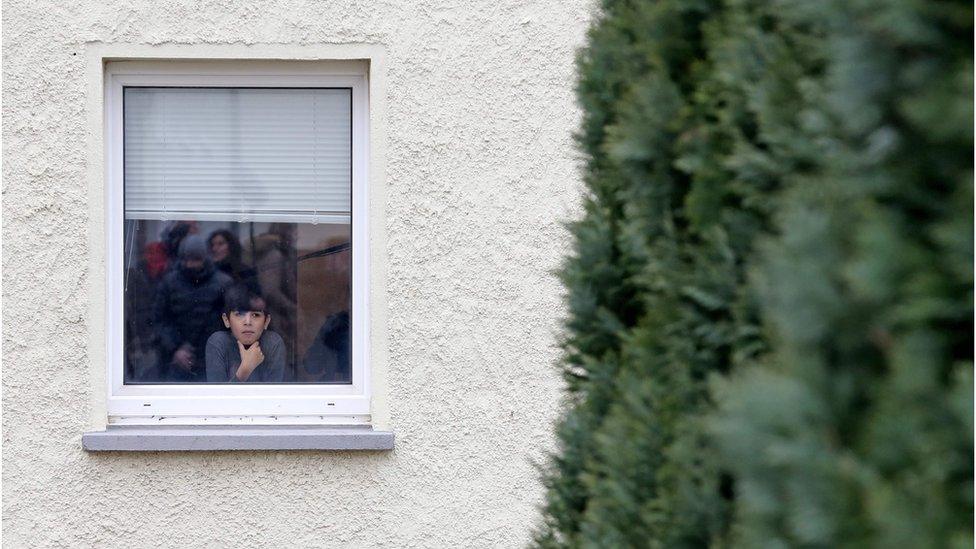
A refugee boy looks out of the window at a refugee centre in Clausnitz, where protestors mobbed a bus
The German government has condemned a mob that tried to stop a bus from taking migrants to a shelter as "cold-hearted and cowardly".
Steffen Seibert, a spokesman for Angela Merkel, apologised, calling the episode "deeply shameful".
About 100 people in the Saxony town of Clausnitz on Thursday shouted "we are the people" and tried to block the bus carrying about 20 asylum seekers.
Video footage showing terrified migrants crying caused outrage.
"How cold-hearted and cowardly one must be to stand in front of a bus with refugees and shout with the aim of frightening the passengers, including women and children," Mr Seibert said.
Two days after the protest in Clausnitz, a shelter for asylum-seekers was set alight in Bautzen while onlookers applauded.
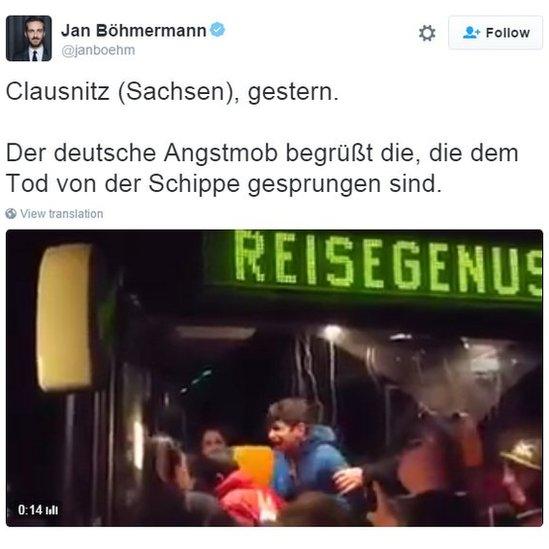
"Clausnitz yesterday. The German fear mob welcomes those who were snatched from the jaws of death," tweeted @janboehm
Mr Seibert called for a "clear response from government institutions and the majority of citizens".
"This is not something that we can solve with rules from Berlin. It is something that we must, as a society, take a clear stance on," he told a press conference.
Attacks show Germany's dark side
Meanwhile, local authorities replaced the director of the refugee shelter after reports linked him to the populist anti-immigration party AfD (Alternative for Germany).
The man, identified as Thomas Hetze, had criticised Berlin's decision to take in war refugees, but decided to help the newcomers all the same, telling the Bild daily: "Can one not be against the policy but still help anyway?"

A glimpse at 'dark Germany': Jenny Hill, BBC Berlin Correspondent
To watch the footage that emerged from Clausnitz last week is to catch a rare glimpse of so called 'dark Germany.' It is not often such events are captured on film, but attacks on Germany's refugee shelters are increasingly common. Government statistics reveal that last year there were about a thousand such attacks, five times the number reported in 2014.
Many wonder why most of these crimes are perpetrated in the former east. Some accuse the local government of turning a blind eye to racism and right wing extremism. Others point to east German history.
There are those who say that such violence represents the extreme edge of what some say is a growing anti-refugee sentiment, even if most Germans are horrified by the attacks. What we do know is that these incidents will inflame an already a febrile national debate over refugee policy.
One senior MP told the BBC recently that the country was running out of time. Mrs Merkel needs to find - or negotiate - a solution. Fast.

Matthias Damm, a member of local authority, said the decision to remove him from the asylum shelter was for his own safety.
AfD head Frauke Petry said her party was looking into the links that the refugee centre director has with the faction. She also warned against drawing conclusions about the episode as investigations are still ongoing.
Separately, it emerged that Mr Hetze's brother had organised the demonstration in Clauswitz.
Germany, which received 1.1 million asylum seekers last year, has recorded a rise in the number of attacks against migrant shelters.
The former Communist east in particular has seen a disproportionate number of far-right hate crimes.

- Published22 February 2016
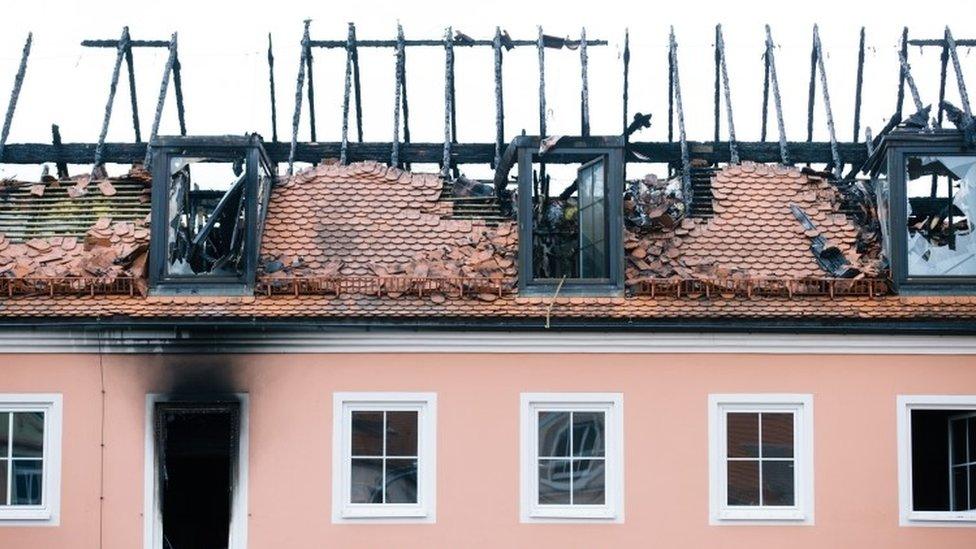
- Published12 February 2016
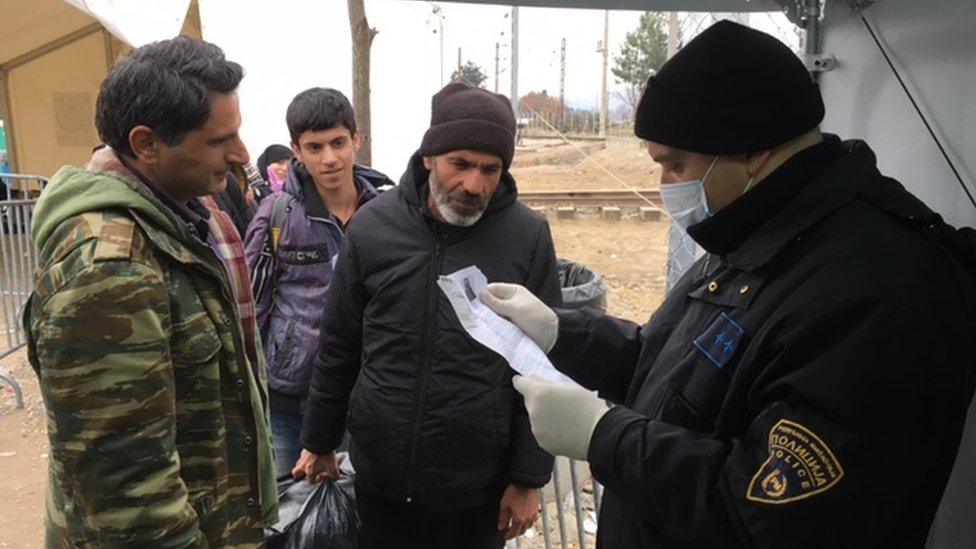
- Published21 February 2016
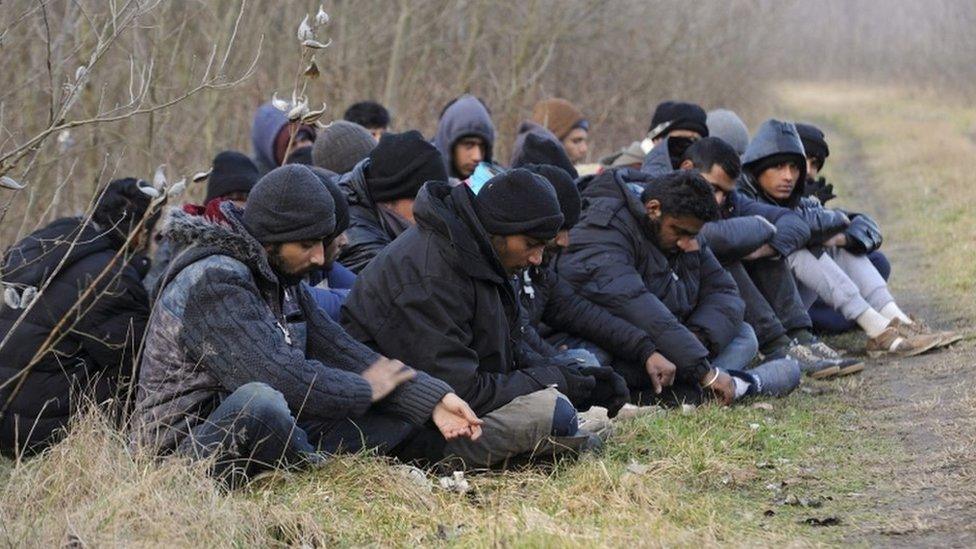
- Published14 January 2016
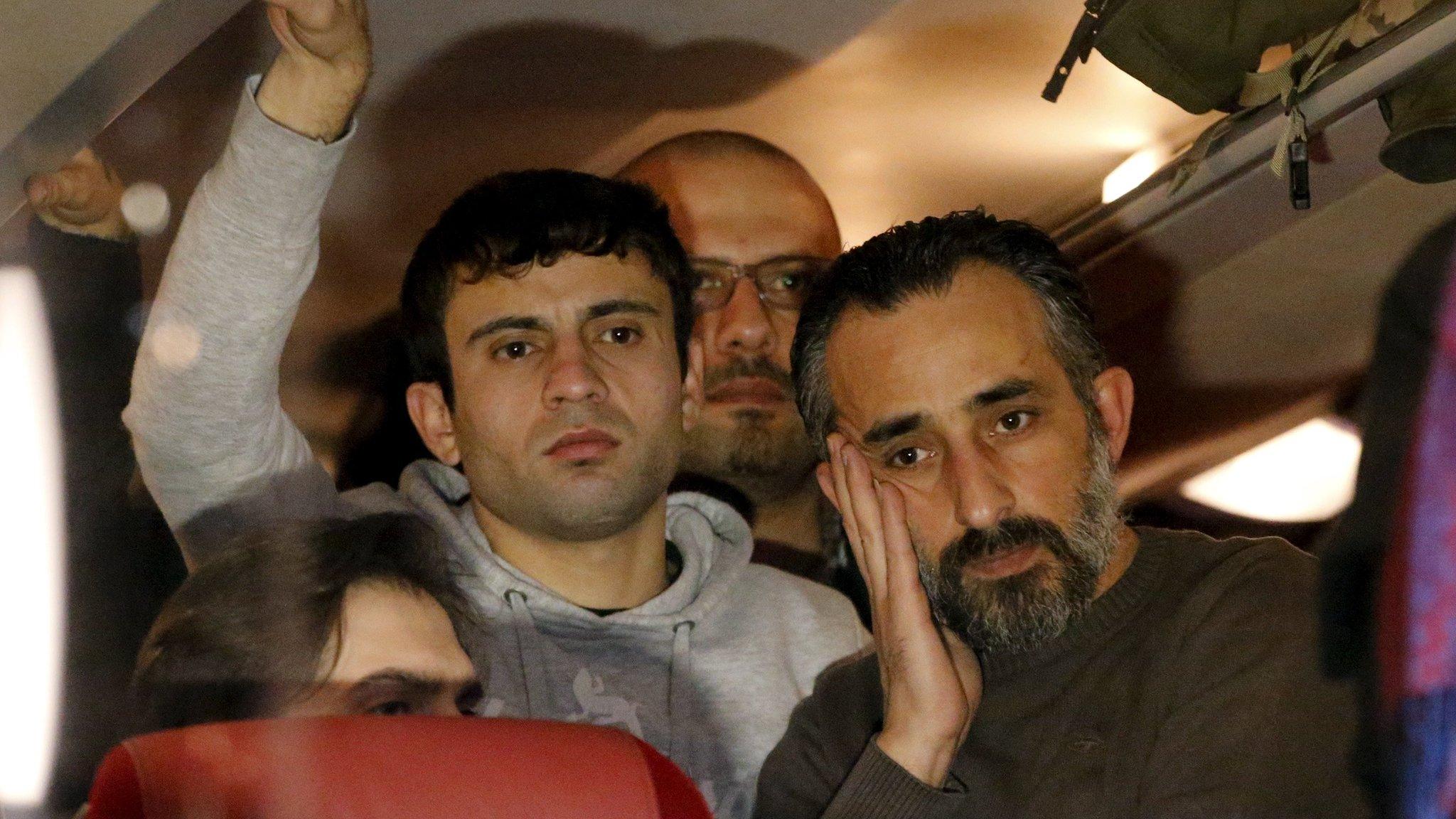
- Published21 February 2016
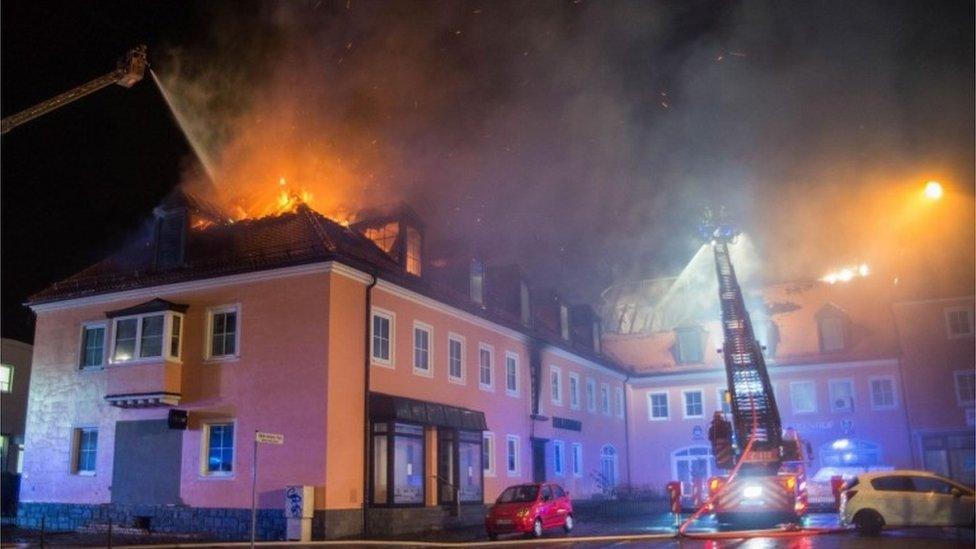
- Published21 February 2016
